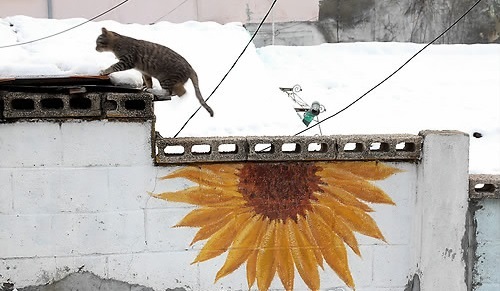Seoul City vowed to expand its stray cat neutering project as part of efforts to reduce the number of such animals, amid growing concerns over the measure’s effectiveness.
Seoul Metropolitan Government said Wednesday it will expand its stray cat neutering project such as by providing subsidies of up to 75 million won ($61,000) per civic organization which carries out the “Trap-Neuter-Return” project. The TNR is a project that captures and sterilizes free-roaming cats to control their numbers.
The TNR costs about 130,000 won per surgery, which has added burden to the budgets of civic groups.
Seoul Metropolitan Government said Wednesday it will expand its stray cat neutering project such as by providing subsidies of up to 75 million won ($61,000) per civic organization which carries out the “Trap-Neuter-Return” project. The TNR is a project that captures and sterilizes free-roaming cats to control their numbers.
The TNR costs about 130,000 won per surgery, which has added burden to the budgets of civic groups.

As of this year, about 250,000 cats are estimated to live on the street, with only about 11 percent neutered.
Stray cats can be easily exposed to various viruses or diseases such as herpes virus or feline panleukopenia.
As public complaints escalated over stray cats, the city has taken various measures to reduce their numbers.
Starting from November last year, the city has run dozens of cat feeding spots in four regions to attract and capture animals for the TNR. It is considering expanding feeding places across the city.
As of January, about 50 percent of stray cats in the feeding spots have been neutered. The city is seeking to raise the neutering rate by 70 percent by June, the authorities said.
With 750 million won of budget, the city aims to neuter about 8,000 stray cat this year with the help of civic participation. The city neuters about 6,000 stray cats per year, officials said.
The city also vowed to quarterly hold TNR Days on which veterinarians conduct on-site TNR for 50 cats in a day. To better attract the stray cats, the city will work with those who regularly feed the animals and are familiar with them.
“To seek the harmonious coexistence of people and animals, the number of stray cats must be cut, and neutering is the most effective measure to do so,” said Kim Chang-bo who is in charge of the public health affairs at Seoul City.
Animal rights activists, however, have expressed skepticism over the project’s effectiveness, citing the characteristics of cats.
“Since cats are colony animals, the surgery is not effective unless 70 percent of each colony cats are captured and neutered at one go,” said Park So-yeon, the president of civic group Coexistence of Animal Rights on Earth, told The Korea Herald.
“After neutering, it is also important to return the neutered cats to their original colonies and not to random ones. If not, the un-neutered cats are likely attack the neutered cats, which have elevated aggression levels, causing them to run away from colonies. This will only lead to inflow of new stray cats.”
Meanwhile, organizations interested in the city’s neutering subsidies should submit applications from March 17-18 at http://ssd.wooribank.com/seoul.
By Lee Hyun-jeong (rene@heraldcorp.com)





![[Herald Interview] 'Amid aging population, Korea to invite more young professionals from overseas'](http://res.heraldm.com/phpwas/restmb_idxmake.php?idx=644&simg=/content/image/2024/04/24/20240424050844_0.jpg&u=20240424200058)











![[KH Explains] Korean shipbuilding stocks rally: Real growth or bubble?](http://res.heraldm.com/phpwas/restmb_idxmake.php?idx=652&simg=/content/image/2024/04/25/20240425050656_0.jpg&u=)

